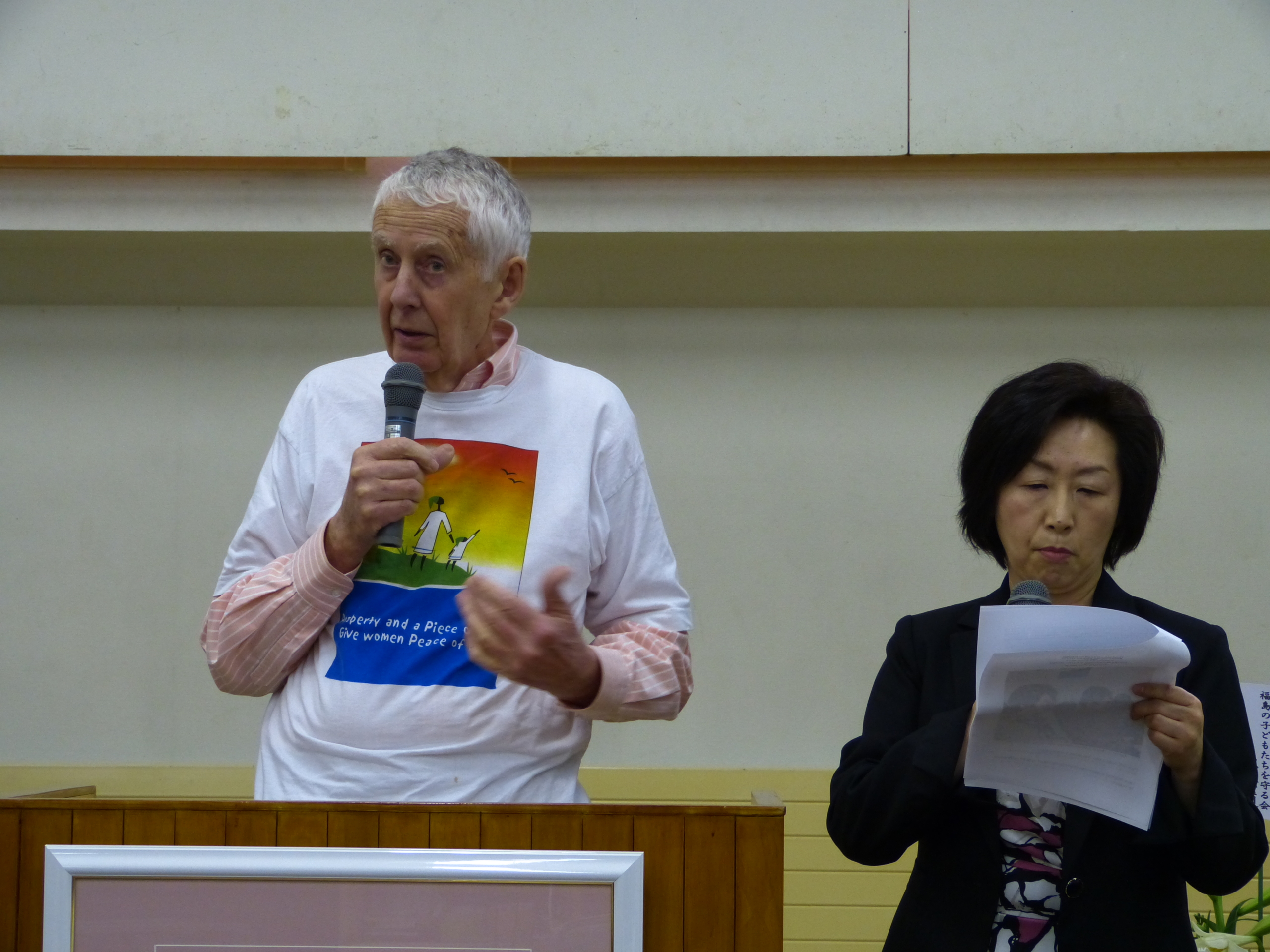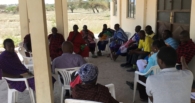Remembering Kaori Izumi
Robin Palmer
18 April 2013
/
- 0 Comments
After a long battle against cancer, my friend Kaori Izumi died at her home in Sapporo, Japan, on 7 March 2013, aged 56. She was a truly remarkable person, a campaigner for women’s land rights in a context of HIV and Aids in Southern Africa, an activist, a mover and shaker, someone who really made a difference in the lives of others. After she died, her husband, Rolf Nergaard, wrote to me saying that Kaori had wanted me to give a speech at her memorial celebration. I regarded this as both an honour and a privilege. So I spent a memorable week in Sapporo with Rolf and Kaori’s children, Akari, Linko and Kai. The celebration itself was quite extraordinary, as over 200 people came to pay their respects and celebrate her life.
My speech at Kaori Izumi’s memorial celebration, Hokkaido Christian Centre, Sapporo, Japan, 21 April 2013
Dear Rolf, Akari, Linko, Kai, ladies and gentlemen
I was delighted to learn from Akari that the colour code for today was to be ‘colourful’.
This gave me the perfect excuse to wear this T-shirt, designed by Akari. It was the T-shirt given to participants in a series of 4 workshops which Kaori Izumi organised in Southern Africa on the theme of the land and property rights of widows and orphans. The logo reads Property and a piece of land give women peace of mind. The workshops were truly inspirational, like Kaori herself, and whenever I wear one of these T-shirts, which I do regularly, I always think of her.
When I heard from Rolf and Akari that Kaori had specifically requested that I give a speech at her memorial, I felt both greatly honoured to be asked, but also rather fearful about whether I could do full justice to one of the most remarkable people I have ever met.
We first met in 2000. She had just completed her Ph.D on Tanzania in Roskilde and was about to take up a post in Harare, Zimbabwe, as land tenure officer for Southern and Eastern Africa for FAO – the Food and Agriculture Organisation of the UN. I was then the Land Policy Adviser for Africa for Oxfam GB, an international non-governmental organisation, with headquarters in Oxford.
My immediate impression was of a veritable human dynamo. I had built up an extensive library on land rights in Africa and I think that Kaori photocopied virtually everything in my library! She also astonished my partner by buying me a bunch of yellow tulips as a ‘reward’ for my time. I was equally astonished.
Kaori stayed in Harare until 2007 and she did truly amazing work during those 7 years. A ‘human dynamo’ pretty accurately described how she worked. She felt passionately about the position of widows and orphans who were having their property grabbed by relatives in the name of ‘custom’. She made it her business to get out of her office, to meet women and some of the organisations trying to help them. She saw injustice at first hand and felt impelled to fight to make the world a better place. As she wrote:
What struck me was not only the brutality of their experiences of being evicted and losing their property, and the destitution that had followed, but also the resilience of these women and children, who were determined to struggle for their survival with dignity, providing support to other women and children in similar situations. The meetings with these women and children motivated me to organise workshops where some of them told their stories.
Kaori was a mover and shaker who really did make a difference in the lives of others. She was always up for a challenge and was never daunted, however strong the obstacles. She learnt about some inspiring initiatives and innovative responses to the situation, and she found sensitive and imaginative ways of sharing those responses in ways that might help others, for example the Memory Books created for orphans to remember their parents, and the work of the victim support unit of the police in Zambia.
She also collected many personal testimonies of orphans and of women living with HIV and she encouraged them to come to her workshops to tell their stories. This was often incredibly moving. She was forever focusing on the practical – what could be done to help people in a particular context and the need to get support to them at the right time. And she was not slow in banging on doors to urge people to make things happen. Everyone who worked closely with her felt inspired by her commitment and her passion. Importantly, we also had a lot of laughs along the way.
You must be logged in to post a comment.



